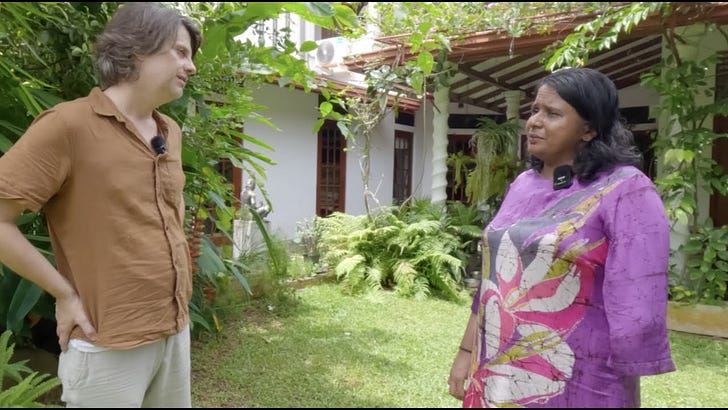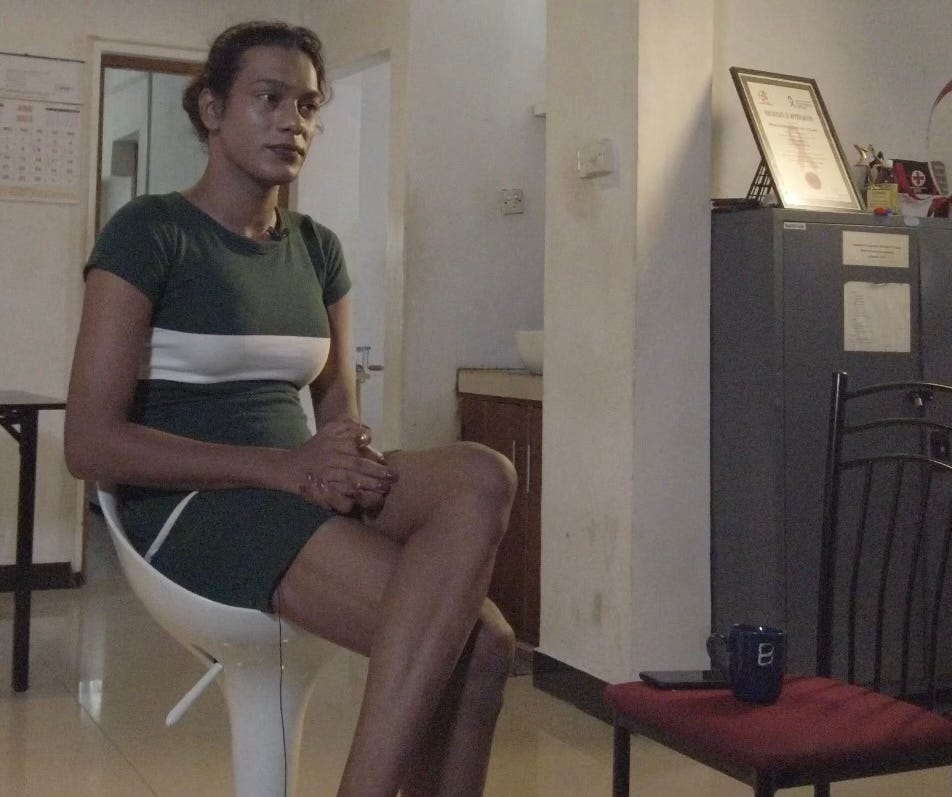Sri Lanka Copes With Climate Change
After decades of instability, people with disabilities confront another man made disaster
Like other countries bordering the northern Indian Ocean, Sri Lanka faces increased risk of severe weather caused by global warming. It’s unfortunately just another challenge the country must contend with after a 30-year civil war as well as economic and political turmoil. And for some women who acquired a disability during the conflict, climate change poses new threats to not only their physical, but mental health.
In this video, my film crew and I travel to Sri Lanka’s north to hear those stories for my documentary Invisible Impact; Disability on Climate Change’s Frontline.
An audio described version of this video can be found here.
The ways that climate change impacts mental health and can cause or complicate a psychosocial disability have largely been unexplored at all levels, globally. I wanted to touch on these concerns in my film and given Sri Lanka’s recent history, I felt this was the right place to look into these intersections.
My collaborator, Waruni Anuruddhka Chandrasena, and I took a six hour road trip from Colombo up to Mannar where we were introduced to some women who lost limbs while fighting in the war. As they explained to us, they don’t usually dwell on the conflict or the incidents that caused their disabilities; they have jobs now and have started families. But, whenever their villages flood and they need to protect their children, they experience new anxieties complicated by their conditions and a lack of an effective emergency response system.
My reporting during this segment of my Fulbright research project didn’t stop there. I wanted to get a fuller picture of how climate change puts additional stress on vulnerable populations. I reached out to Bhoomi Harendran, Executive Director of the National Transgender Network Sri Lanka. She’s spoken about the mental health difficulties people in her community experience due to prejudice, as well as laws that target the LGBTQ+, but I wanted to get her thoughts on how all these pieces come together during a disaster-related evacuation and sheltering event.
Bhoomi Harendran In a country like our’s, that doesn’t think mental health is really important in general, people are going through a lot with mental health issues. Because there is no proper guidance, no instructions for people to have good mental health. So, as a community that gets neglected from services, who get rejected from information providing platforms, (we) don't have much support to have a good mental health life. We all go through a lot with mental health issues because of the stigma that we are facing. The discrimination that (transgender people) are going through can make them very much depressed.
Jason Strother Sri Lanka has gone through a lot of trauma over the past few decades. This all adds up, right?
Bhoomi Harendran Yeah, there was a civil war and after that there was this pandemic. And then this economic crisis. The country is going through a lot.
Jason Strother We're talking about climate change related disasters. In the case of an evacuation, some kind of emergency where maybe a person who is transgender needs to leave their home, find some kind of safety. What are some of the concerns for the community in that type of emergency situation?
Bhoomi Harendran During that kind of situation, I don't see a huge discrimination within the system. But, what I see, not being recognized as a citizen, not recognized as a human being will lead to a lot of problems. Because they are not recognized, their needs not recognized, the difference of the gender and gender identity. And based on that the things which we require aren’t recognized.
Jason Strother. Do you think a situation like that could be triggering?
Bhoomi Harendran Yes, because sometimes if you are in the middle of the transitioning process you will have sort of confusion about where you fit and the place that you want to be. But, where society thinks you are supposed to be could be different. You can face a lot of different types of violence. Not only physical but also it can be verbal and it can also be very emotional violence as well. Like neglecting, like not getting included, not providing proper services, not letting you be in a service receiving position. But, let's have hope. We can't say all people are bad. There are people who actually have humanity. So, those people will listen.
This conversation was edited and shortened for clarity.
Invisible Impact
Disability on Climate Change’s Frontline
An audio described version of the trailer below can be found here.
To find out more about my forthcoming short film, reach out to me at jason@lens15.com or reply to this newsletter.
Learn more at Lens15.com/impact
Keeley Giblin edited this newsletter




